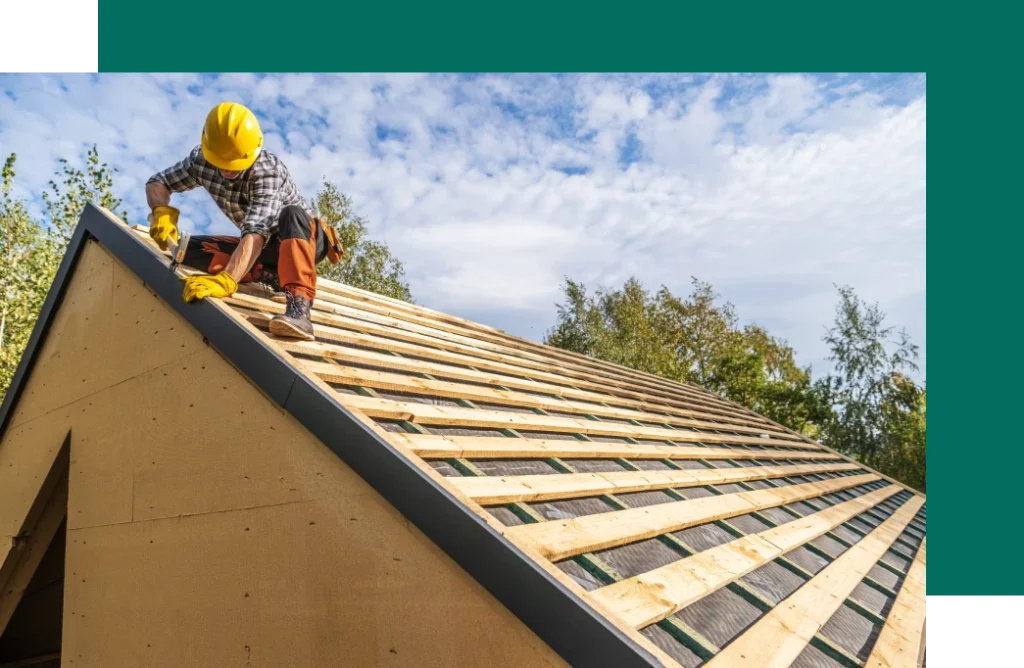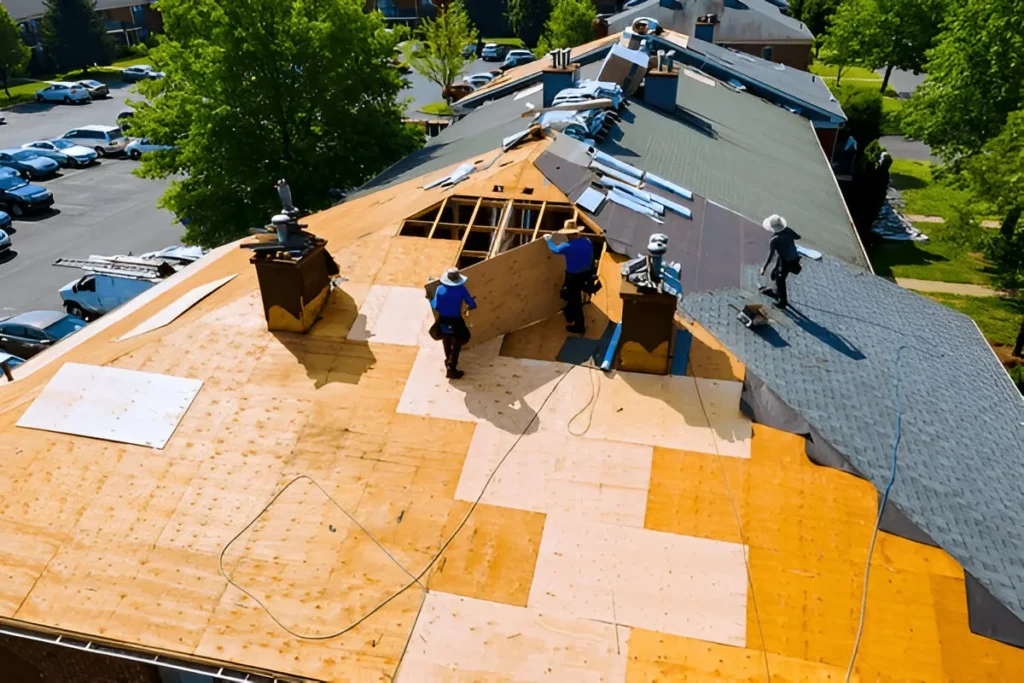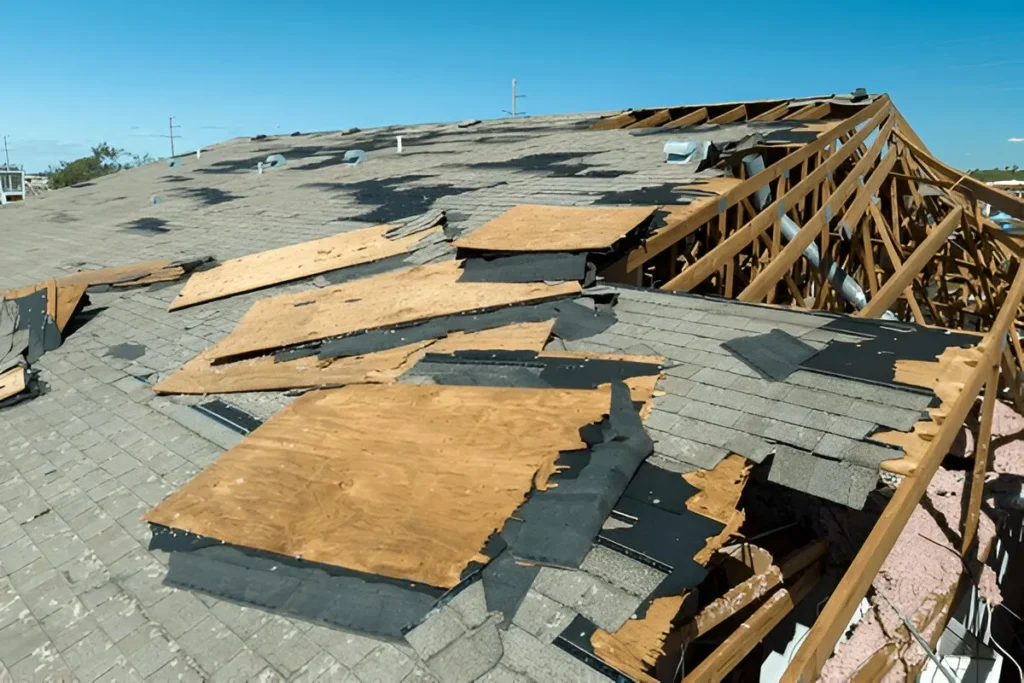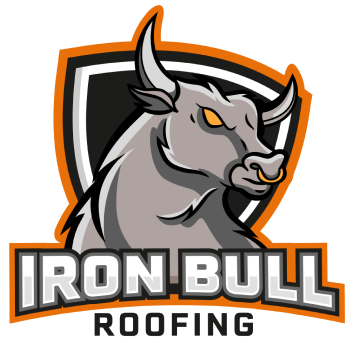Average Cost to Replace a Roof
The Ultimate Guide to Understanding Average Cost to Replace a Roof
A new roof represents one of the most significant investments you’ll make in your home. Beyond protecting your family and belongings from the elements, a quality roof replacement can increase your property value by thousands of dollars while reducing energy costs and preventing costly water damage down the road.
Understanding average cost to replace a roof can feel overwhelming, especially when quotes vary dramatically between contractors. The reality is that numerous factors influence the final price, from the materials you choose to the complexity of your roof’s design. Some homeowners spend as little as $8,000 for a basic asphalt shingle replacement, while others invest $50,000 or more for premium materials on large, complex roofs.
Iron Bull Roofing has helped countless homeowners navigate these decisions, providing transparent pricing and expert guidance throughout the roof replacement process. With years of experience in residential roofing, we’ve seen how proper planning and understanding can save homeowners thousands while ensuring they get the quality and durability they need.
Factors Affecting Roof Replacement Cost
Type of Roofing Material
Your choice of roofing material significantly impacts both upfront costs and long-term value. Each material offers different benefits, lifespans, and price points.
Asphalt Shingles
Asphalt shingles remain the most popular choice for American homes, typically costing between $3 to $7 per square foot installed. Basic three-tab shingles offer the lowest cost, while architectural shingles provide enhanced durability and aesthetic appeal for slightly higher prices. Premium asphalt shingles can cost up to $12 per square foot but offer superior weather resistance and longer warranties.
Wood Shingles or Shakes
Wood roofing materials range from $6 to $14 per square foot installed. Cedar shingles provide natural beauty and excellent insulation properties, though they require more maintenance than other materials. Wood shakes offer a more rustic appearance but may face restrictions in fire-prone areas due to building codes.
Metal Roofing
Metal roofing systems cost between $7 to $15 per square foot installed, with premium options reaching $20 per square foot. Steel, aluminum, and copper each offer different benefits and price points. While metal roofing requires a higher upfront investment, its 40-70 year lifespan often makes it cost-effective over time.
Tile Roofing
Clay and concrete tiles typically cost $8 to $18 per square foot installed. These materials excel in hot climates and can last 50-100 years with proper maintenance. However, their weight requires structural evaluation and potential reinforcement, adding to installation costs.
Slate Roofing
Natural slate represents the premium end of roofing materials, costing $15 to $30 per square foot installed. While expensive upfront, slate roofs can last over 100 years and provide unmatched durability and beauty. Like tile, slate’s weight may require structural modifications.

Roof Replacement Cost
Roof Size and Complexity
Roof size directly affects material and labor costs. Contractors typically measure roofs in “squares,” with one square equaling 100 square feet. A simple 2,000 square foot home might have a 2,400 square foot roof (24 squares) when accounting for slope and overhangs.
Roof complexity significantly impacts labor costs. Simple gable roofs with few penetrations cost less to replace than complex designs featuring multiple dormers, valleys, chimneys, and skylights. Hip roofs, mansard roofs, and roofs with steep pitches require specialized techniques and safety equipment, increasing labor expenses.
Labor Costs
Labor typically accounts for 40-60% of total roof replacement costs. Rates vary significantly by region, with metropolitan areas generally commanding higher prices than rural locations. Experienced roofing crews may charge premium rates but often complete work faster and with fewer callbacks than less experienced teams.
Seasonal demand affects labor costs, with spring and fall representing peak seasons when contractors may charge higher rates. Winter installations in moderate climates might offer cost savings, though weather delays can extend project timelines.
Underlayment and Other Materials
Quality underlayment protects your home if shingles fail and affects overall system performance. Basic felt underlayment costs less than synthetic alternatives, but synthetic underlayment offers superior durability and weather resistance. Ice and water shield protection for vulnerable areas adds cost but prevents expensive water damage.
Additional materials include starter strips, ridge caps, flashing, drip edge, and fasteners. While these components represent a small percentage of total costs, quality materials in these areas prevent future problems and extend roof life.
Permits and Inspections
Most municipalities require permits for roof replacement, typically costing $100 to $500 depending on local regulations and project scope. Some areas also mandate inspections during installation, which may include additional fees. Working with licensed contractors familiar with local requirements ensures proper permitting and compliance.
Disposal Fees
Removing and disposing of old roofing materials adds $1 to $3 per square foot to project costs. Multiple layers of old shingles increase disposal expenses, as does the presence of asbestos or other hazardous materials requiring special handling.
Location
Geographic location affects material costs, labor rates, and local building requirements. Coastal areas may require hurricane-rated materials and installation methods, while regions with heavy snow loads need systems rated for higher weight capacities. Urban areas typically feature higher labor costs but may offer more contractor options and competitive pricing.
Additional Cost Considerations
Roof Repairs
Structural roof repairs discovered during tear-off can significantly impact project costs. Rotted decking, damaged rafters, or inadequate ventilation require attention before new roofing installation. While these discoveries seem costly, addressing them prevents future problems and ensures proper system performance.
Gutter Replacement
Many homeowners coordinate gutter replacement with new roofing to achieve better integration and avoid potential damage to new materials. New gutters typically cost $3 to $8 per linear foot installed, depending on material and style choices.
Skylight Installation
Adding or replacing skylights during roof replacement offers cost savings compared to separate installations. New skylights range from $800 to $2,500 each installed, depending on size, features, and installation complexity.
Chimney Repairs
Roof replacement projects often reveal chimney issues requiring attention. Repointing mortar joints, replacing caps, or installing new flashing ensures proper integration with your new roofing system.
Ventilation Improvements
Proper attic ventilation extends roof life and improves energy efficiency. Installing ridge vents, soffit vents, or powered exhaust fans during roof replacement maximizes effectiveness while minimizing installation costs.

Average Roof Replacement Cost
How to Get an Accurate Estimate
Research Local Roofing Contractors
Start by identifying licensed, insured contractors with strong local reputations. Check Better Business Bureau ratings, online reviews, and ask neighbors for recommendations. Verify licenses and insurance coverage before inviting contractors to quote your project.
Get Multiple Quotes
Obtain at least three detailed quotes to understand market pricing and identify potential red flags. Quality contractors provide itemized estimates breaking down materials, labor, and additional services. Extremely low bids often indicate corner-cutting or hidden costs that emerge later.
Check References and Reviews
Contact recent customers to learn about their experiences with contractors under consideration. Ask about work quality, timeline adherence, cleanup practices, and overall satisfaction. Online reviews provide additional insights but focus on recent projects reflecting current business practices.
Understand the Contract
Review contracts carefully before signing, ensuring they specify materials, installation methods, timeline, and warranty coverage. Understand payment schedules and avoid contractors demanding large upfront payments. Legitimate contractors typically request minimal down payments with progress payments tied to completion milestones.
Financing Options
Home Equity Loans
Home equity loans offer lower interest rates for roof replacement projects, with payments spread over extended terms. These loans use your home’s equity as collateral, making qualification dependent on sufficient equity and creditworthiness.
Personal Loans
Personal loans provide quick access to roof replacement funds without using home equity as collateral. While interest rates exceed home equity loans, the streamlined application process appeals to homeowners needing immediate financing.
Credit Cards
Credit cards offer convenient financing for smaller projects or emergency repairs. However, high interest rates make them expensive for large roof replacements unless you can pay balances quickly or qualify for promotional interest rates.
Insurance Claims
Storm damage may qualify for insurance coverage, significantly reducing out-of-pocket costs. Document damage thoroughly and work with contractors experienced in insurance claim processes. Remember that insurance typically covers replacement with similar materials, not upgrades to premium options.
Why Choose Iron Bull Roofing
Expertise and Experience
Iron Bull Roofing brings years of specialized experience to every roof replacement project. Our team understands local building codes, weather challenges, and best practices that ensure lasting results. This expertise helps homeowners avoid costly mistakes while maximizing their roofing investment.
Quality Materials
We partner with leading manufacturers to provide high-quality materials backed by comprehensive warranties. Our material selection process considers your budget, aesthetic preferences, and local climate conditions to recommend optimal solutions for your specific situation.
Professional Installation
Our certified roof installation crews follow manufacturer specifications and industry best practices on every project. Proper installation techniques ensure maximum material performance and warranty compliance while maintaining the highest safety standards throughout the work process.
Customer Satisfaction
Iron Bull Roofing prioritizes customer satisfaction through transparent communication, accurate pricing, and quality workmanship. Our commitment extends beyond project completion, providing ongoing support and warranty service to protect your investment long-term.

Roof Installation Cost
Making the Right Investment for Your Home
Roof replacement is a major investment protecting your home. Understanding costs helps you make smart choices. Remember, the lowest bid isn’t always the best value. Quality materials, expert installation, and good warranties may cost more initially but prevent future problems and save money long-term. Research contractors, compare detailed quotes, and choose a professional who offers clear answers and transparent pricing.
Iron Bull Roofing provides expert guidance and professional service. Contact us for a free estimate and ensure your home is protected for decades.
https://www.google.com/maps?cid=1166087704919324729
